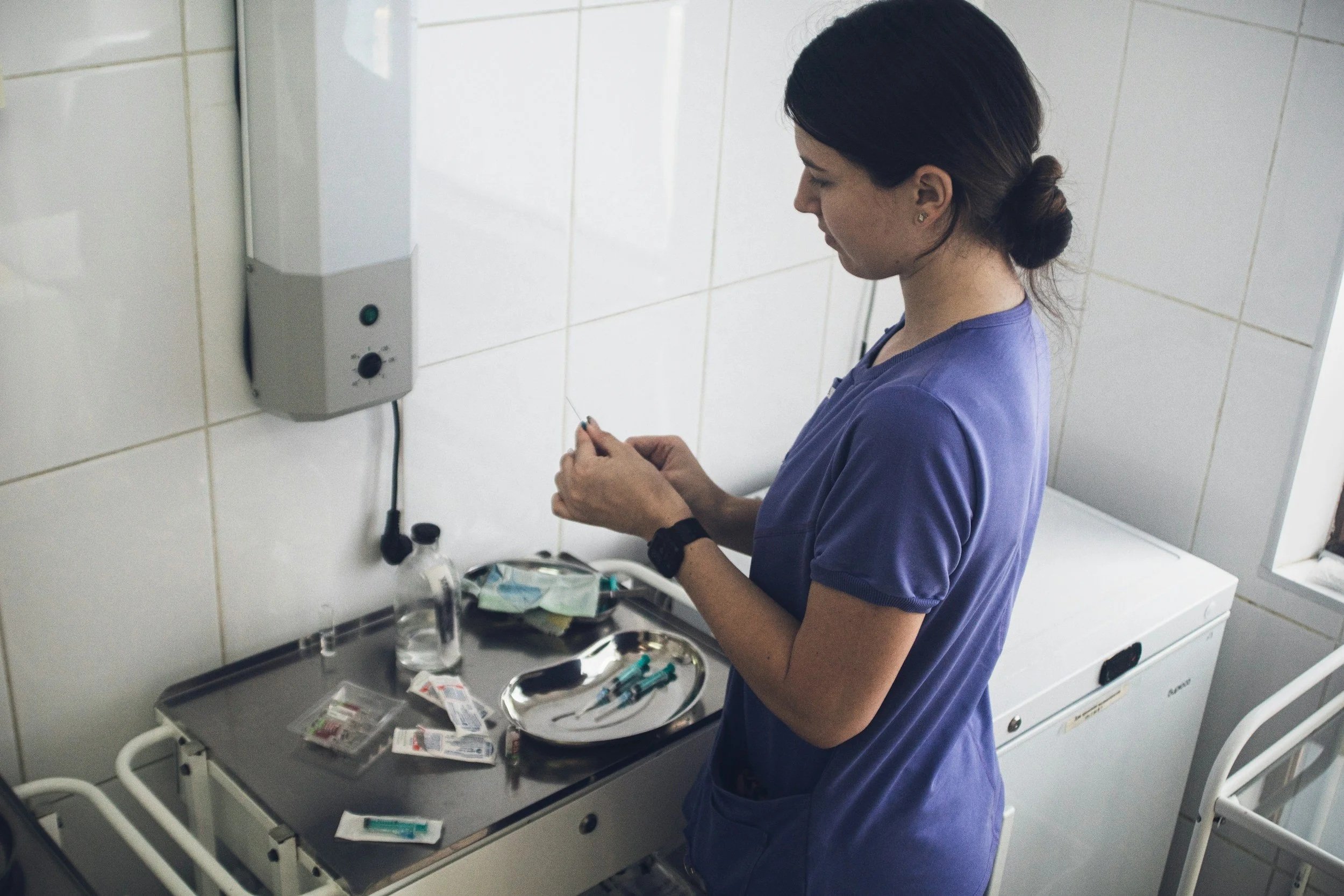Whether a fibroid affects the egg freezing process is entirely dependent on its size and location.
First, What’s a Fibroid?
A fibroid is a benign (non-cancerous) overgrowth of the uterine muscle wall. They are a common diagnosis for women in their 20s, 30s, and 40s, and may or may not cause symptoms depending on their size and placement within the uterus.
Possible Symptoms
Fibroids can range from the size of a grain of rice (tiny!) to the size of a grapefruit or even a melon (substantially larger). For women with large fibroids, multiple fibroids, or fibroids that press on other organs, the experience can be uncomfortable to say the least. These women can experience long, heavy periods; irregular menstrual bleeding; pain or pressure in the pelvis, back, or legs; frequent urination; constipation; or other symptoms that affect their health and quality of life.
Fibroids and Fertility
Fibroids can also have a potential impact on future fertility. Some examples in which a fibroid may make achieving pregnancy more difficult involve but are not limited to:
1. Distortion of the uterine cavity which can make it more difficult for a fertilized egg to implant or grow appropriately.
2. Interference with blood supply/flow to the uterus, affecting the ability of the uterus to maintain a pregnancy.
3. Obstruction of the fallopian tubes, preventing the egg from reaching the uterus and decreasing chances of successful fertilization.

Will They Impact The Egg Freezing Process?
Typically, most fibroids will not impact the egg freezing process and women who may need any procedures to remove their fibroids in the future should actually consider freezing their eggs beforehand. This is because many of the treatments for fibroids may inadvertently damage the eggs in the process.
However, if the fibroid is especially large or impacts the ability of the provider to visualize and/or access the ovary during the egg retrieval, it is not recommended to undergo egg freezing until the fibroid has been surgically removed. This can be identified during a pelvic ultrasound.
Women who are considering egg freezing and who have been diagnosed with fibroids should consult with a healthcare provider who specializes in reproductive medicine to discuss their individual situation and treatment options. The healthcare provider may recommend additional testing or procedures to assess the impact of the fibroids on the egg freezing process.

Valerie Shafran, MSN, FNP-C is an empathetic board certified nurse practitioner who is passionate about educating women regarding their reproductive health and their future options surrounding fertility. Valerie has been with Extend Fertility for over 4 years and has an extensive background in women’s health. She has worked within the postpartum and OBGYN settings and has dedicated her career to providing exceptional and personalized care to each of her patients. She completed a bachelor’s degree in nursing from George Washington University in 2017 and received her Masters Degree as a Family Nurse Practitioner from SUNY Downstate Medical Center in 2021.
Learn more about Extend Fertility’s egg freezing practice on Freeze.
This article was written in collaboration with Dr. Joshua Klein who also answered, “Can I Be On Birth Control If I Want To Freeze My Eggs?”
Considering egg freezing?
Check out Freeze’s free Compare Clinics tool - it includes pricing, locations, and more for US and international egg freezing clinics.
Answered by Dr. Roy Handelsman from HRC Fertility. Understand how ovarian cysts and ovarian surgery may impact the egg freezing process.
Answered by Dr. Rashmi Kudesia from CCRM Fertility Houston. Here’s a checklist for before, during, and after your egg freezing consultation, including 11 questions you should ask the doctor.
Answered by Valerie Shafran, MSN, FNP-C from Extend Fertility. Discover why fertility experts urge women to stop taking GLP-1 agonists before an egg freezing cycle.
Answered by Dr. Nidhee Sachdev from South Coast Fertility Specialists. Explore what AMH tells us about a woman’s ovarian reserve or how many eggs she has left.
Answered by Dr. Hade from Generation Next Fertility. Understand how egg freezing does not cause long-term weight gain yet there is a chance of transient bloating.
Answered by Rijon Charne, JD from Sunray Fertility. Explore what a reproductive estate plan entails and the situations where having one can make a big difference.
Answered by Rijon Charne, JD from Sunray Fertility. Learn more about the importance of clinic disposition forms, including what they do and don’t cover.
Answered by Rijon Charne, JD from Sunray Fertility. Discover the legal nuances that can shape your options when freezing eggs or embryos.
Answered by Dr. Joshua Klein from Extend Fertility. Learn how birth control relates to egg freezing and if you will need to stop your hormonal birth control before starting the procedure.
Answered by Dr. Jesse Hade from Generation Next Fertility. Discover the important factors that affect chances of egg freezing success in your late thirties.
Answered by Sidonia Buchtova, PA-C, C-RHI from Refresh Psychiatry. Understand if you can stay on an SSRI or SNRI when freezing your eggs.
Answered by Sidonia Buchtova, PA-C, C-RHI from Refresh Psychiatry. Discover tips to help support your mental well-being during preparation, throughout the cycle, and after your egg retrieval, especially if you have a history of anxiety.
Answered by Dr. Katharina Spies from Vida Fertility. Learn about who should consider supplements before and during fertility preservation, and how supplements could support your egg freezing cycle.
Answered by Dr. Serin Seckin from Generation Next Fertility. Understand the key differences to help you make an informed decision that aligns with your personal and reproductive goals.
Answered by Dr. Ido Feferkorn from the Reproductive Medicine Group. Learn how Polycystic Ovarian Syndrome (PCOS) may affect the egg freezing process and outcomes of fertility preservation.
Answered by Dr. Meera Shah from Nova IVF. Understand the potential risks of egg freezing to help you evaluate if it is right for you.
Answered by Dr. Hade from Generation Next Fertility. Learn from start to finish the entire process of what happens on the final day of an egg freezing cycle.
Answered by Dr. Sahar M. Stephens from Northern California Fertility Medical Center. Understand the probability of pregnancy based on the number of eggs frozen and the age at which you freeze.
Answered by Dr. Alison Peck from HRC Fertility. Discover which medications are commonly used for ovarian stimulation during an egg freezing cycle.
Answered by Dr. Kathryn Snow from Piedmont Reproductive Endocrinology Group (PREG). Understand the side effects that you may experience when freezing your eggs.
Answered by Lia Schiller, MSN, AGNP-BC from Extend Fertility. Learn why IUDs can stay in place throughout the egg freezing process.
Answered by Dr. Woo from HRC Fertility. Learn how some medications need to be stopped for an egg freezing cycle while some medications can be continued.
Answered by Dr. Dan Nayot from The Fertility Partners. Learn how artificial intelligence is providing women with more information than ever before about their eggs.
Answered by Dr. Joshua Klein from Extend Fertility. Egg freezing doesn’t impact your chance of getting pregnant naturally, because egg freezing makes use of eggs that would otherwise have been lost.
Answered by Dr. Dan Nayot from The Fertility Partners. Understand the distinction between egg quantity and quality, and explore how AI is transforming egg quality analysis.
Answered by Dr. David E. Tourgeman from HRC Fertility. Understand what options exist for what to do with your frozen eggs if you decide not to use them for IVF.
Answered by Dr. Armando Hernandez-Rey from Conceptions Florida. Learn about minimal stimulation egg freezing cycles and how they can decrease the risk of ovarian hyperstimulation syndrome.
Answered by Dr. Ido Feferkorn from the Reproductive Medicine Group. Find out how egg freezing medications work and how protocols can be adjusted if you can’t take estrogen.
Answered by Dr. Ido Feferkorn from Reproductive Medicine Group. Learn how egg freezing fits into the menstrual cycle and how timing can be customized.
Answered by Dr. Elena Santiago from Vida Fertility. Understand the ins and outs of egg freezing in Spain as a non-resident, including timing, costs, and more.































